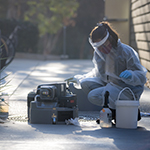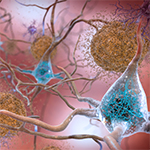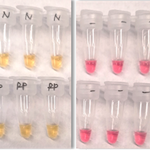HDSI Welcomes Dexcom
The Halıcıoğlu Data Science Institute (HDSI) is pleased to welcome Dexcom to our robust Industry Partnership Alliance Program.
The Halıcıoğlu Data Science Institute (HDSI) is pleased to welcome Dexcom to our robust Industry Partnership Alliance Program.

UC San Diego School of Medicine researchers develop an automated process to test city sewage for SARS-CoV-2, allowing them to forecast the region’s COVID-19 caseload one to two weeks ahead of clinical diagnostic reports.

Tissues which consist largely of collagen were the focus of a recent collaborative study by a team from Stanford University and Purdue University. To accomplish their work, they used the Comet supercomputer at the San Diego Supercomputer Center at UC San Diego.

Researchers at UC San Diego School of Medicine and elsewhere have identified a new drug that could prevent AD by modulating, rather than inhibiting, a key enzyme involved in forming amyloid plaques.

Researchers at UC San Diego Health see a possible way to detect heart disease through the eye.

Rapid COVID-19 tests are on the rise to deliver results faster to more people, and scientists need an easy, foolproof way to know that these tests work correctly and the results can be trusted. Nanoparticles that pass detection as the novel coronavirus could be just the ticket.

Keep up with all the latest from UC San Diego. Subscribe to the newsletter today.
You have been successfully subscribed to the UC San Diego Today Newsletter.